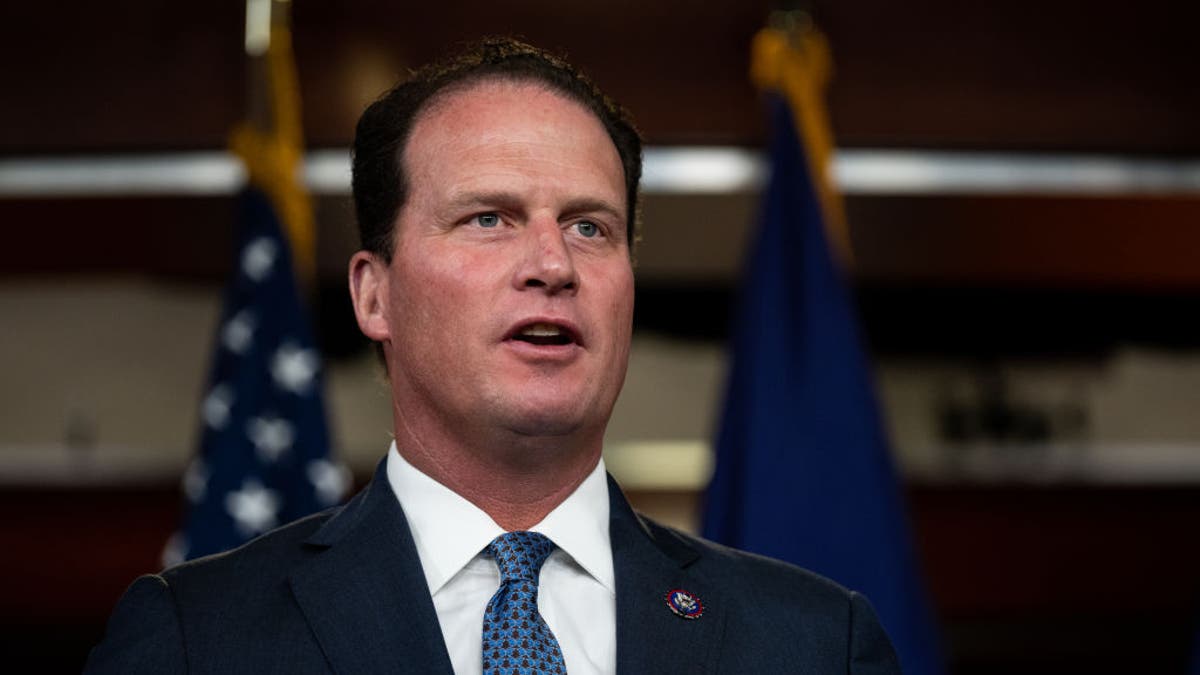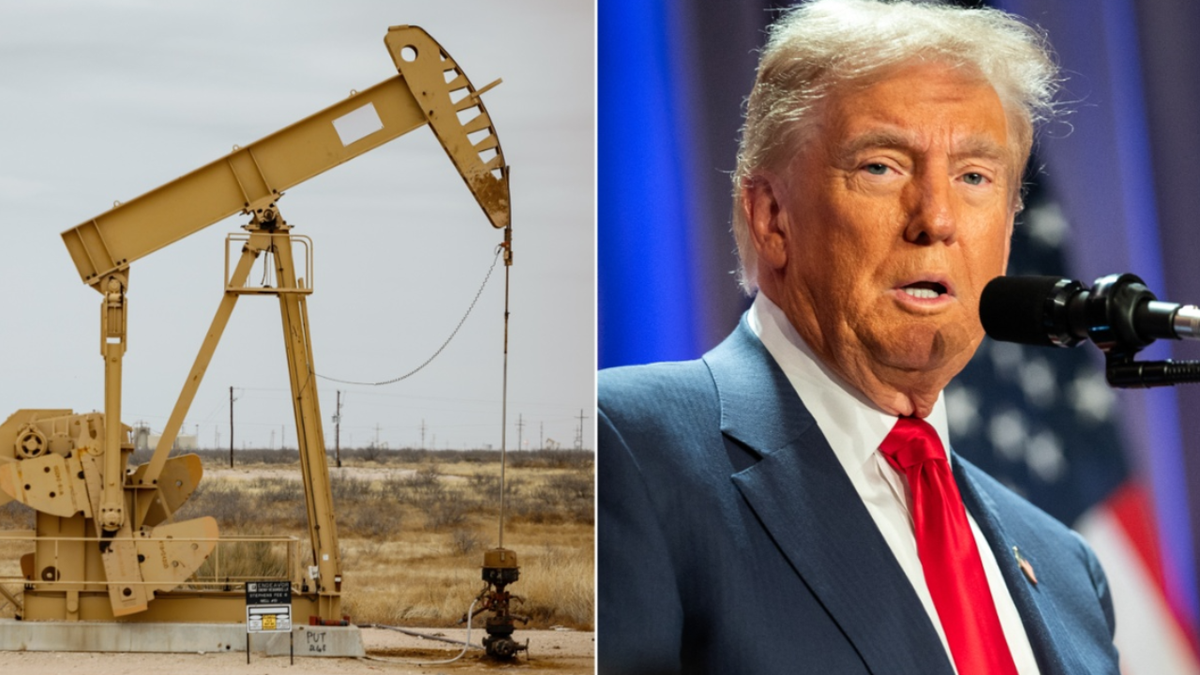The Republican-controlled U.S. House of Representatives passed a bill on Friday aimed at curbing the power of future presidents to unilaterally halt oil and gas drilling on federal lands.
The “Protecting American Energy Production Act,” which passed with a vote of 226-188, restricts the executive branch from imposing a moratorium on hydraulic fracturing (fracking) without the explicit approval of Congress.
This legislation comes on the heels of former President Joe Biden’s executive actions that, among other things, banned oil and gas drilling across 625 million acres of coastal and offshore waters in the final days of his administration.
Republicans have called these measures a part of what they describe as a “war on American energy production,” and have positioned the bill as a necessary step toward ensuring energy security in the future.
The bill was introduced by Representative August Pfluger, a Republican from Texas, who expressed concern that future administrations might take similar or even more aggressive actions against energy production.
The move is also seen as part of a broader effort by the GOP to reverse what they perceive as harmful climate policies implemented during the Biden administration.
Pfluger, in a statement after the bill’s passage, did not mince words about his position on the issue. “When President Biden took office, his administration took a ‘whole of government’ approach to wage war on American energy production, pandering to woke environmental extremists and crippling this thriving industry,” he said.
“My legislation that passed today is a necessary first step in reversing Biden’s war on energy by preventing the federal government from banning the use of hydraulic fracturing.”

Hydraulic fracturing, commonly known as fracking, has been a major method for extracting oil and natural gas from shale deposits in the United States. It has played a key role in the country’s rise to becoming one of the world’s top energy producers.
The new bill would prevent any president from instituting a ban on fracking without first receiving congressional approval.
Should the bill become law, it would have long-lasting implications for future administrations. The new law would prevent any U.S. president from halting hydraulic fracturing through executive action alone, regardless of political party or policy priorities.
This could potentially limit the ability of future presidents to take swift action on climate change and environmental protection by requiring Congressional approval for measures that would halt fracking or oil drilling on public lands.
If the bill makes it through the Senate, it will represent a significant shift in the balance of power between the executive branch and Congress when it comes to energy production.
The Republican-controlled House has made clear its desire to keep U.S. energy production high, but whether the Senate, where Democrats hold a slim majority, will follow suit is still uncertain.
If it does pass, President Biden’s successor—whether a Democrat or a Republican—would find it much harder to enact similar environmental protections without involving Congress.
The bill passed largely along party lines, with Republicans strongly supporting the measure and Democrats opposing it. Just one Republican, Representative Adam Kinzinger, voted against the bill.

On the other hand, 118 Democrats voted against it, expressing concern that it would curtail presidential powers at a time when executive action on climate change is crucial.
Democratic lawmakers, including Representative Jared Huffman of California, were vocal in their opposition to the bill. “This bill will set us back in the fight against climate change,” Huffman said.
“We need a president who has the ability to take bold steps to protect our environment. This bill ties the hands of the president, making it harder to take meaningful action to prevent the worst effects of global warming.”
Environmental groups have also condemned the bill, calling it a dangerous step backward for the U.S. climate agenda. "This bill is yet another attempt to favor fossil fuel companies at the expense of our planet’s future,” said Heather McTeer Toney, a former EPA official and a senior advisor to the Sierra Club.
“It is a clear sign that the Republican Party is not serious about addressing the climate crisis.”
The legislation comes in response to a series of actions taken by the Biden administration, including the moratorium on drilling in federal waters.
In the final days of Biden’s presidency, his administration enacted sweeping regulations restricting drilling and fracking in offshore areas, which the GOP has repeatedly criticized as harmful to the energy sector and American workers.
In his final weeks in office, Biden’s Interior Department moved to cancel leases for offshore drilling in the Gulf of Mexico and other regions, citing environmental concerns. This decision was part of Biden’s broader efforts to reduce U.S. dependence on fossil fuels and pivot toward renewable energy sources.

Republicans, including House Speaker Kevin McCarthy, have claimed that such actions harm American workers and raise energy prices, disproportionately affecting working-class families.
"The Democratic Party is pushing policies that will make energy more expensive for hardworking families, while lining the pockets of the radical environmentalists," McCarthy said in a statement. "This bill will ensure that American energy is produced here at home and not reliant on foreign nations."
This bill also comes amid growing concerns about U.S. energy independence. Under the Trump administration, the U.S. became the world's leading oil and gas producer, a status Republicans want to preserve.
The Trump administration’s “energy dominance” strategy sought to boost domestic production of oil, gas, and coal, all while cutting environmental regulations.
On the campaign trail, former President Trump regularly touted his administration’s success in increasing domestic energy production, and his stance on drilling remains unchanged.
Trump has vowed that, if he returns to office, he will unleash America’s energy potential by overturning regulations that restrict drilling on public lands.
President Biden, on the other hand, has emphasized the importance of addressing climate change and reducing the U.S. carbon footprint. His administration’s climate agenda calls for aggressive action to transition to cleaner, renewable energy sources, while reducing the reliance on fossil fuels.
This divide in energy policy has become a central issue in U.S. politics, with climate change advocates urging faster action on clean energy, and industry leaders pushing for continued support for oil and gas production.

Hydraulic fracturing has revolutionized the U.S. oil and gas industry. By extracting oil and natural gas from shale deposits, it has made the U.S. one of the world’s top energy producers.
However, the process has also raised environmental concerns, particularly regarding water contamination and the impact of fracking chemicals on nearby communities. Despite these concerns, many states, particularly Texas and Pennsylvania, have seen significant economic growth due to fracking.
The debate over hydraulic fracturing is likely to continue for the foreseeable future, especially as U.S. lawmakers continue to weigh the benefits of energy production against the risks posed to the environment.
The bill introduced by Representative Pfluger would make it more difficult for future administrations to enact blanket bans on fracking, putting a spotlight on the divide between those who prioritize economic growth and those who prioritize environmental sustainability.
As the debate over U.S. energy production continues, lawmakers on both sides of the aisle are under increasing pressure to address the country's energy needs while balancing concerns about climate change.
While Republicans are pushing to expand drilling and production, Democrats are advocating for policies that reduce reliance on fossil fuels and promote renewable energy.
This bill, if passed, will likely continue to divide the political landscape, with environmental groups and climate advocates warning of the long-term dangers posed by continued oil and gas reliance, while industry leaders and Republicans insist that such policies are essential for maintaining U.S. energy security and independence.
The bill’s passage follows a broader trend of scrutiny over the actions of the Biden administration’s Department of the Interior, headed by Secretary Deb Haaland.

Haaland has faced significant criticism from Republicans over the department’s stance on energy production, particularly after the administration's decision to cancel oil leases in the Gulf of Mexico.
In response to criticism, Secretary of the Interior Doug Burgum launched internal investigations into agency policies that he claimed have "burdened" energy development, seeking to dismantle regulations that he believes unfairly impact the industry.
The department’s stance on energy policy remains a key battleground between environmental groups and those advocating for increased fossil fuel production.
The passage of the “Protecting American Energy Production Act” by the Republican-controlled House represents a significant moment in the ongoing debate over energy policy in the U.S.
With the Biden administration pushing for action on climate change and renewable energy, Republicans are rallying behind efforts to prevent future presidents from unilaterally blocking oil and gas drilling.
The bill is expected to face an uphill battle in the Senate, where it remains unclear whether it will garner enough support to pass.
As the nation grapples with its energy future, this bill illustrates the deep divide in U.S. politics over how best to balance the need for energy production with the urgency of addressing climate change. Whatever the outcome, this debate is sure to continue as a central issue in future elections and policy discussions.




